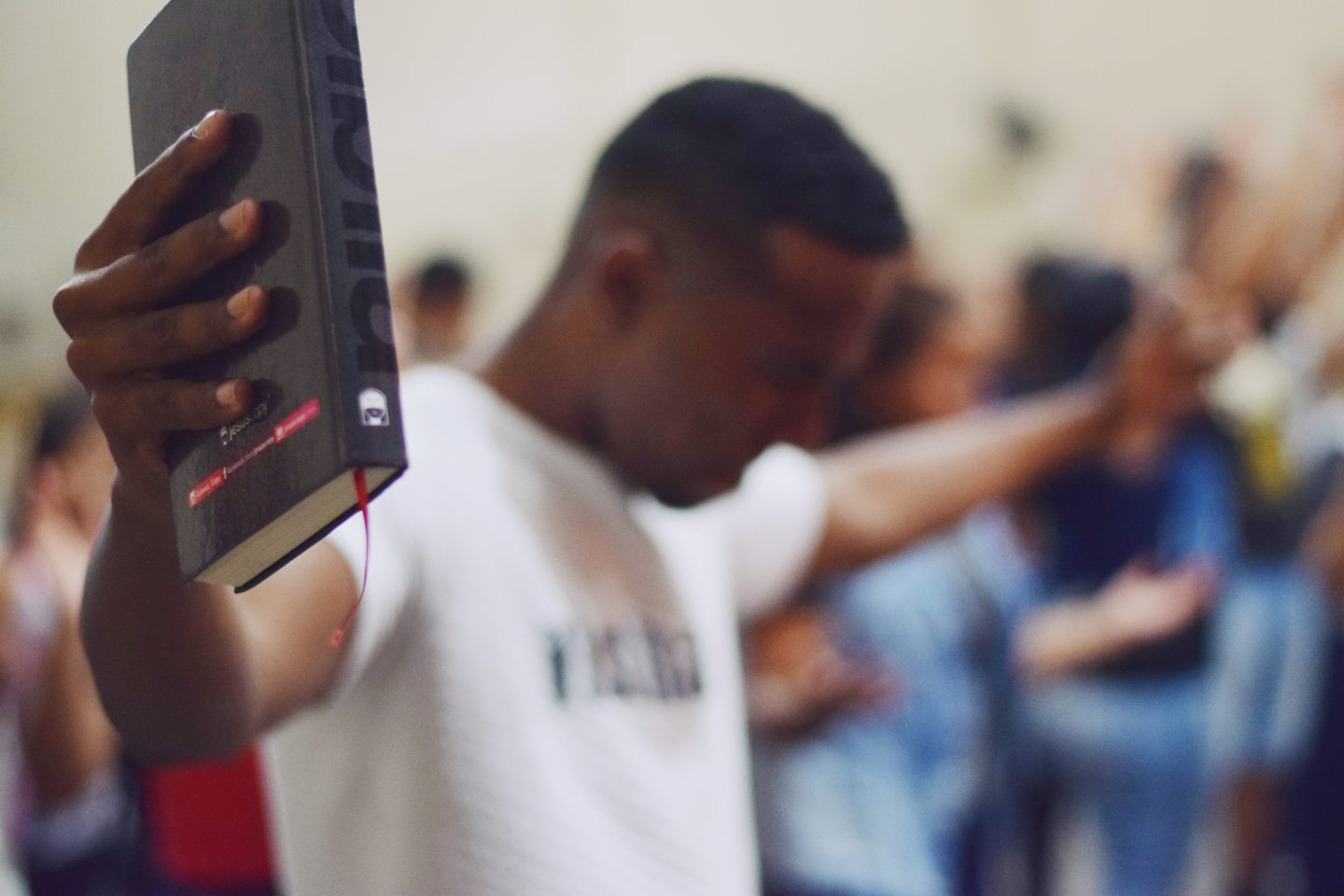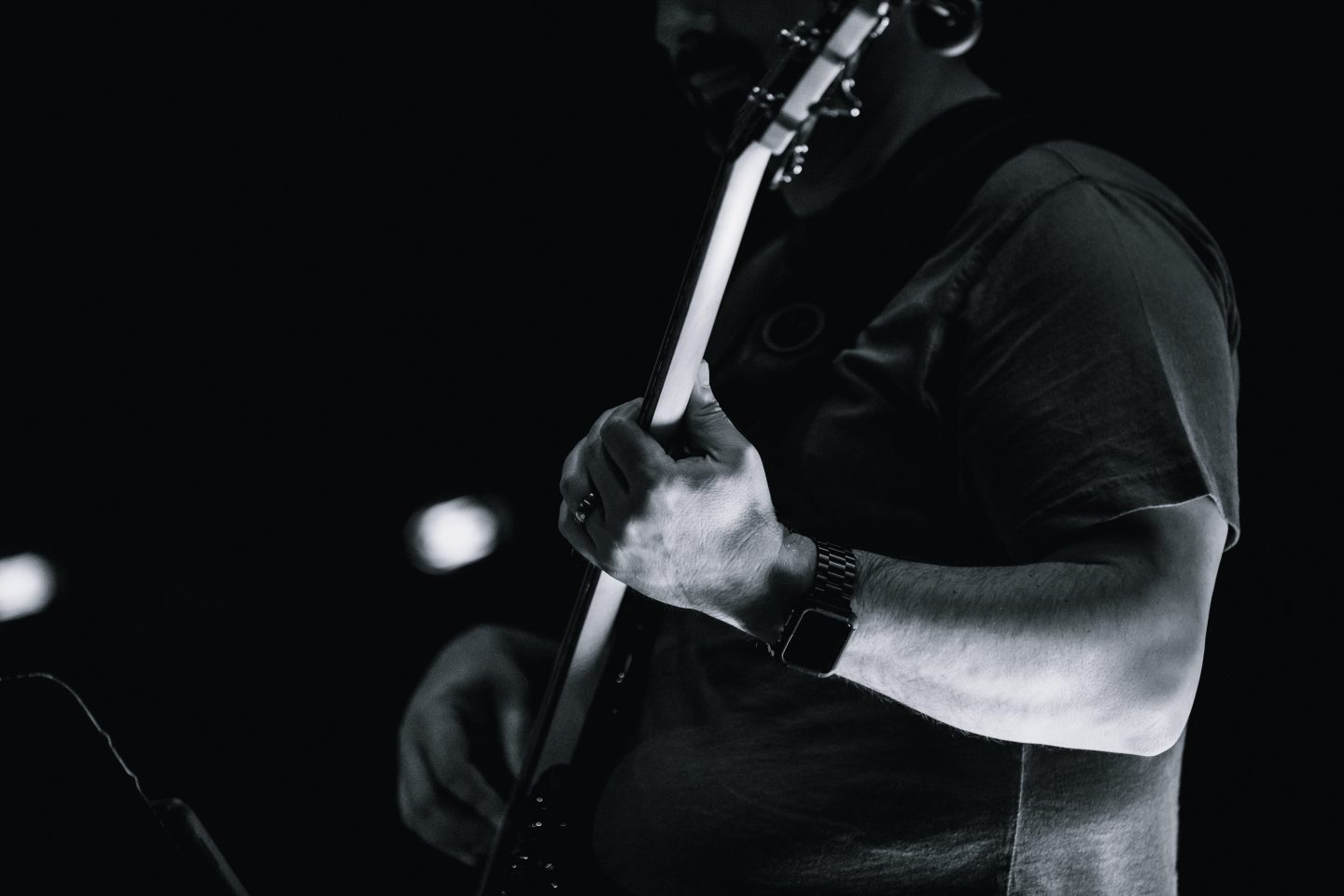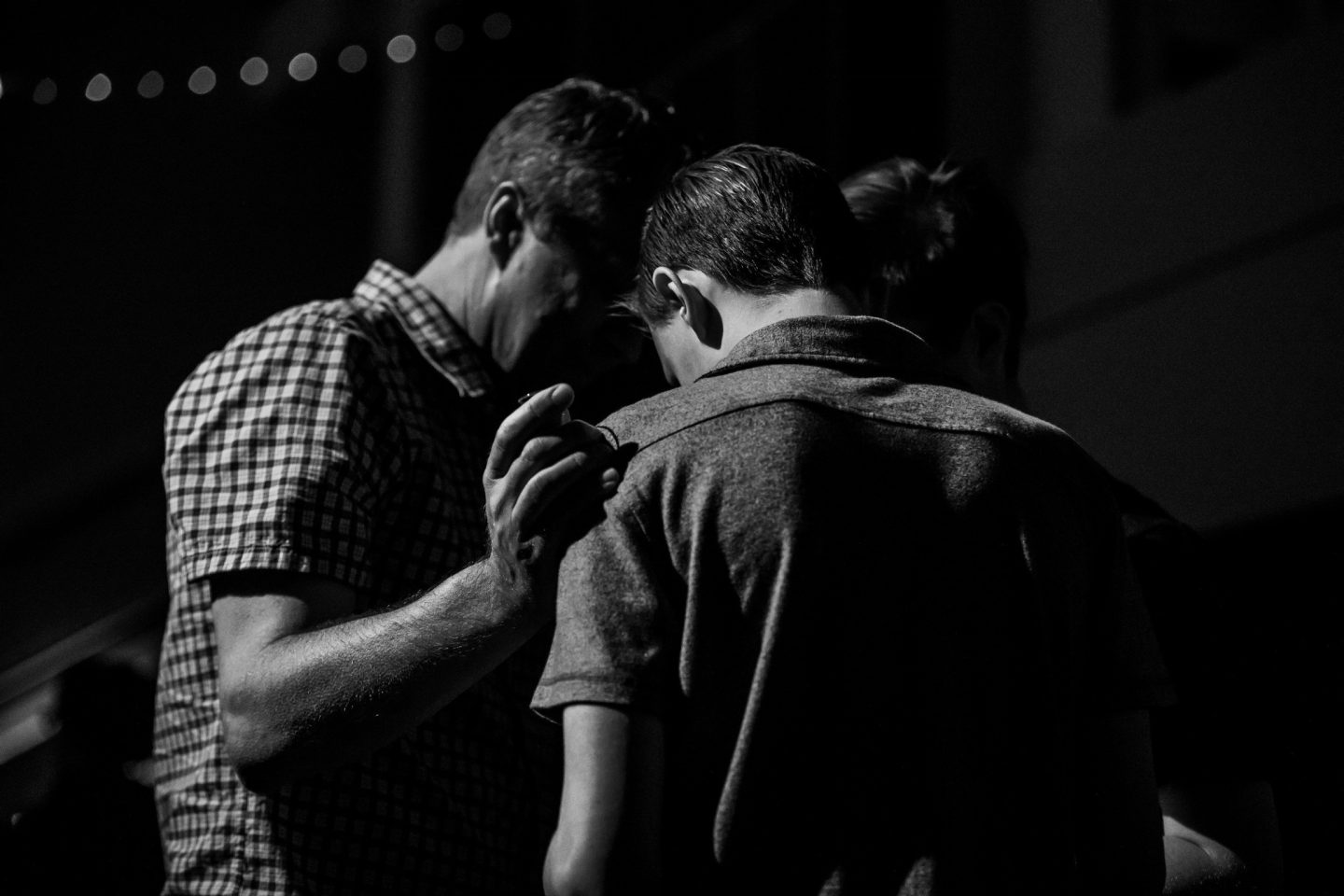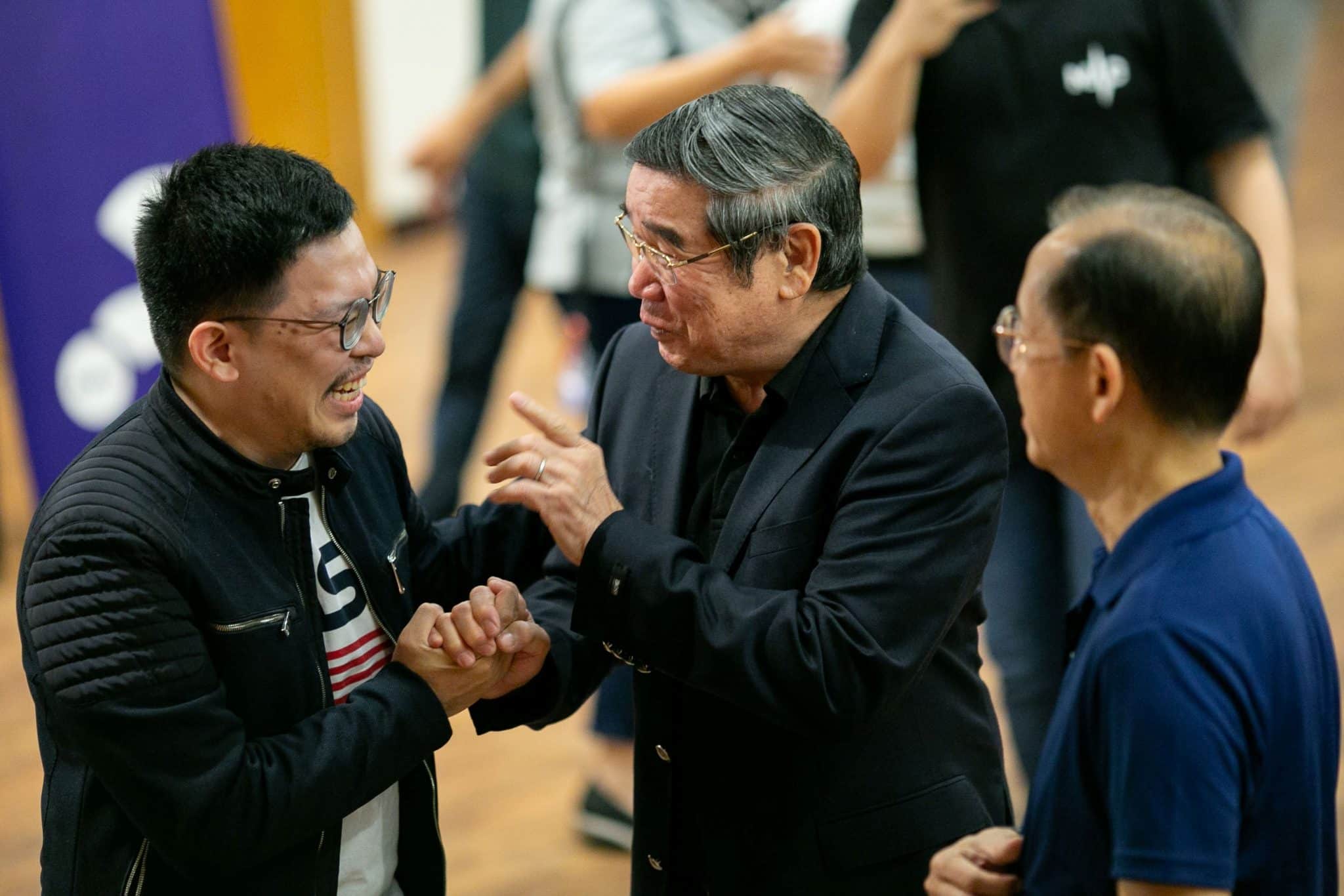Ministering to an underground church: Singaporeans who dodge danger to serve God’s people
by Karen Tan // February 1, 2019, 2:58 am

Just getting to the underground churches is somewhat harrowing, with long drives and last-minute route changes in order to avoid being followed. Photo by Igor Rodrigues on Unsplash.
The van that N* was in, was going in circles for a long while. Night had fallen and they were travelling in pitch blackness except for the headlights that pierced the dark silence.
N, who has a keen sense of direction, was puzzled and blurted to the driver: “Haven’t we passed this way many times?”
“We have to make sure no one is following us,” the driver replied.
The sense of danger became palpable and N started praying silently.
The driver made some more rounds before finally turning into an old, unused rural school building where the underground believers congregated.
“That night we shared with the underground church. We taught them over the next several hours,” N recalls.

“Worship musicians and bands are traditionally used during funerals. So on Sunday services, the musicians do not play, there’s just preaching of the Word,” J explains. Photo by Jack Sharp on Unsplash.
Going underground
Since 2008, N has been going into country X to teach music and worship to believers from an underground church. She specialises in vocal training and plays the keyboard.
Each year she makes several trips together with different teams assembled by their leader, B*. He is not Singaporean.
However, about five years ago, the tide turned.
The authorities started tightening their hold on religious freedom. In 2014, B was banned from entering the country.
Till today the details are sketchy, and word is that he had been under watch for a while before the clampdown. The groups disbanded. However, N continued to enter on her own whenever the local community invited her.
B’s banishment coincides with reports of greater persecution among believers across different parts of the world. To some observers, the rise in oppression does not surprise.

During the week, one night is dedicated to ministering to the students in the underground church. After a simple message, trainers spend time praying for the participants with the laying of hands. Photo by Jack Sharp on Unsplash.
J*, another Singaporean, plays the keyboards in her church.
Over a cup of coffee, a musician friend had asked J if she spoke the local language of country X. She did, and he said, ‘Okay, we’re going on this date’.
“I jumped at the opportunity,” remembers J.
“That was it, and I was recruited. He didn’t tell me what to expect and the other details except for, ‘You just come.’”
They had to be driven many hours out of the city, venues had to be changed last minute, to avoid detection.
Secrecy continued to shroud every visit they made over the years.
Team members came from different countries and each person would only be given minimal details of dates and the airport to meet at.
Only B, the team leader, knew who was going, where they were going and what they would be doing.
J recalls her first trip: “I didn’t know where I was going. That was actually the first time I met B and the other team members.
“Over the years, the team came and went spontaneously. Details were only given when you arrived in the country. Then we were told, ‘Oh, first session starts tomorrow.’
A year after J joined the covert ministry, she invited N.

“During one session, I felt God wanted me to share something, and the message was for a particular student,” recalls N. “During the ministry night, I prayed for him. When I met up with the student recently, he said he took to heart what God had spoken during the workshop. Today, God has taken him up another level, with a new anointing.” Photo by James Barr on Unsplash.
“We would teach five to six days in a stretch, usually over the weekend, from 9am to 9pm or later,” says J. “There’s no time for sightseeing; that is not factored in. Once we’re done, we fly home the next day.
“B made sure we worked!” she adds.
N and J would return home tired, but feeling blessed to have been able to minister to, and worship with, brothers and sisters in a remote corner of Christ’s kingdom on earth.
A house on fire
Participants were quietly hand-picked by the underground church leaders.
They spent several days learning the technical details of the roles they specialise in: Keyboards, strings, percussion, vocals or worship leading. They are then grouped to conduct worship sessions, to put into practice what they have learnt.
Their students in the underground churches proved to be a very motivated lot.
During worship sessions, you just need to strike the first chord on the keyboard and you know: ‘The presence of God is here.’
“Every student had a notebook, and all would be scribbling furiously away. Anything and everything you said, they would write it down.” N says.
“For the intensive 12-hour workshop days, the students were given two-hour lunch breaks, but most would stand to eat their lunch super-fast and go straight back to the hall to practise what we had just taught.
“We taught completely technical musical stuff. The focus was teaching of skills, but I would share the spiritual aspect and factor in the Word. I would talk about the attitude the musician should have. Catching the heart of worship is the most important, and what really matters,” J adds.
N and J have more than 20 years of worship ministry experience and they are now sought after professional musicians and teachers. They have played in front of paying crowds and have been on worship teams that led thousands in songs and praise.
Yet, “exciting” is the word they continually used to describe their cloaked ministry in country X.
They both have stories to tell of when their hearts thumped fast and moments when they could only hold their breath and pray.
For most trips, they had to be driven many hours out of the city, venues had to be changed last minute, they have been put on standby and then moved from the flat plains up treacherous roads to remote villages in the mountains to avoid detection.
And there have been moments that tugged at their heartstrings.
Leaving footprints
“During worship sessions, you just need to strike the first chord on the keyboard and you know: ‘Whoa! The presence of God is here.’
“It’s the hunger in the people’s hearts; they are very ready to worship,” J shares.
“It’s the hunger in the people’s hearts; they are very ready to worship.”
N adds: “Here, we are so comfortable within our church, our culture. The people in country X have very different expectations. Their level of understanding in terms of music may not be as high, but their intensity of worship beats everything. Their worship is so different from us. They’re able to jump right into worship very quickly.
“In Singapore, we sit so comfortably, and the first song we sing is just to warm everybody into worship. For them, right from the first note, they ignore their surroundings and lock into God.
“The exciting part for me is that they’re already all on fire. Can you imagine what can happen to the entire country with their worship?”
In their later trips, both N and J were pleasantly surprised at their team line-up.
“When I reached the venue, my team members turned out to be our previous local students. I realised then that I had produced the next generation; I just teared,” says J.
“My missions pastor said to leave our footsteps in the places we visited as missionaries. My late senior pastor also encouraged training. He used to say people will take the training and bless someone else. It struck me that my skill could make tracks in a place I have not even set foot in.”
“If God brought us to a place, then if He wants us to die there, it’s His plan. If not, He will bring us back home.”
What about the fear factor? It is a very real concern in a country which makes no apologies about apprehending foreigners.
To N, “the excitement covers all the fear. I always have this mindset that if God brought us to a place, then if He wants us to die there or stay there, it’s His plan. If not, He will bring us back home. Just leave everything to God.”
“If anything happens to her, I would have to answer to her husband,” J jests.
“In the early days we didn’t have so much of a problem. With our passports, we had diplomatic ties. I guess at most they would have just sent us home.”
For J, though, the bigger obstacles were found in the small things.
“I actually struggle with public toilets. Even in Singapore, I’d complain about the public toilets and will send my friends to inspect and report on the state of the toilets before I enter.
“But when I’m in the mission field, I close my eyes and just go.
“And sometimes you have to eat things that you wouldn’t eat at home. I think that’s what we need to do when we are out there – to be like the locals.”
State of the church
Today, there are reports that the authorities are cracking down further on churches.
Believers in country X have always been cautious, mindful of the history of persecution believers had to face for decades.
There are government-sanctioned churches but an even bigger congregation worships underground.
N recalls when she first went to X about a decade ago. “At that time, I think the mayor of the place we visited was a Christian, so they got the teams in as much as possible. On my first visit, I could see there were a number of underground churches; there were numerous red crosses on top of the buildings.”
“My view of worship has changed; I don’t take worship for granted any more.”
In a visit less than three months ago, she noted the difference. “I was told the atmosphere is very sensitive and the government has come down especially harsh in certain provinces.
“All the crosses had to be torn down within a day. If not, the authorities would tear down the entire church building. The only crosses that are still standing are those of the government-approved churches.
“Students, teachers or civil servants are no longer allowed to attend church. In official forms, they are not allowed to state that they are Christian in the religion section. Those who do are forced to cancel it out or write something else.”
The persecution is real and continues. While N and J have only a glimpse of the real struggles, it has had an impact on them.
“My view of worship has changed, I don’t take worship for granted any more,” says J soberly.
“There are countries where believers have to worship in secret.
“You wouldn’t understand until the privilege of free worship is taken away from you.”
*Names have been withheld for security reasons.
We are an independent, non-profit organisation that relies on the generosity of our readers, such as yourself, to continue serving the kingdom. Every dollar donated goes directly back into our editorial coverage.
Would you consider partnering with us in our kingdom work by supporting us financially, either as a one-off donation, or a recurring pledge?
Support Salt&Light


